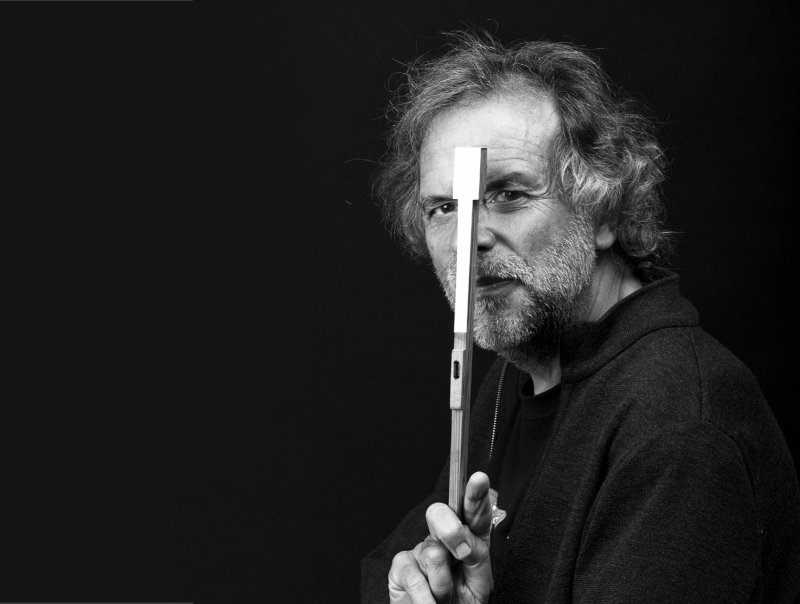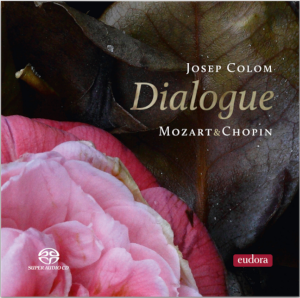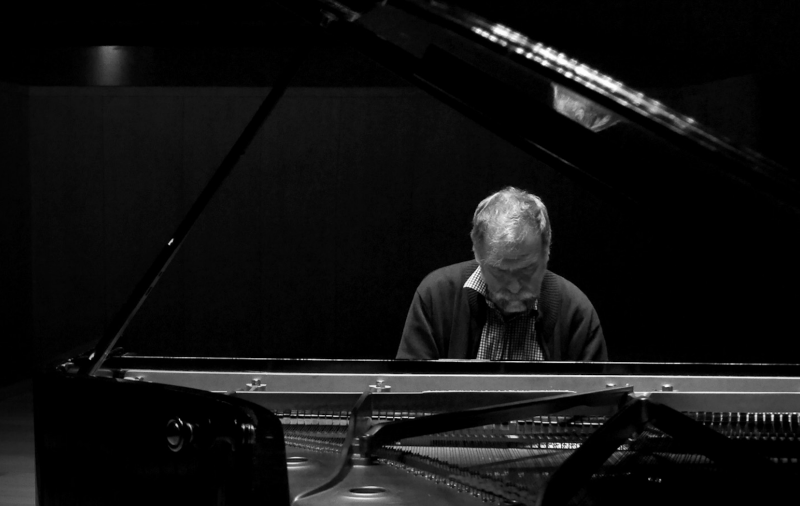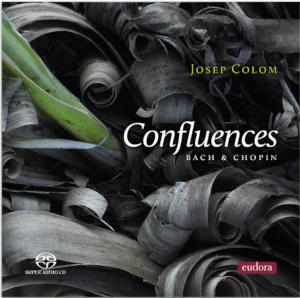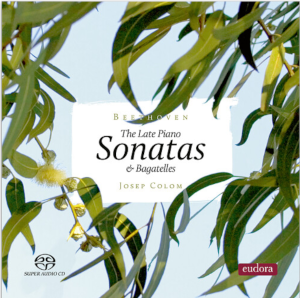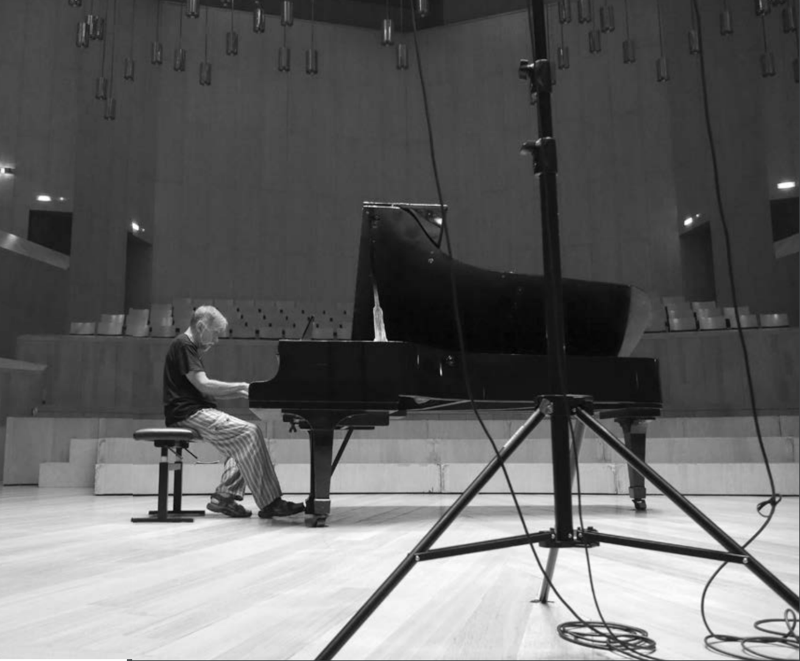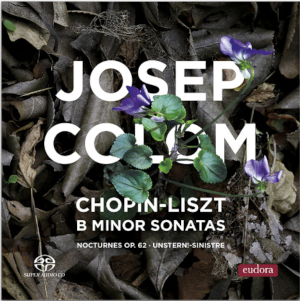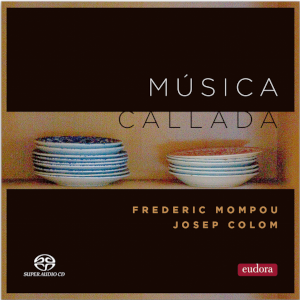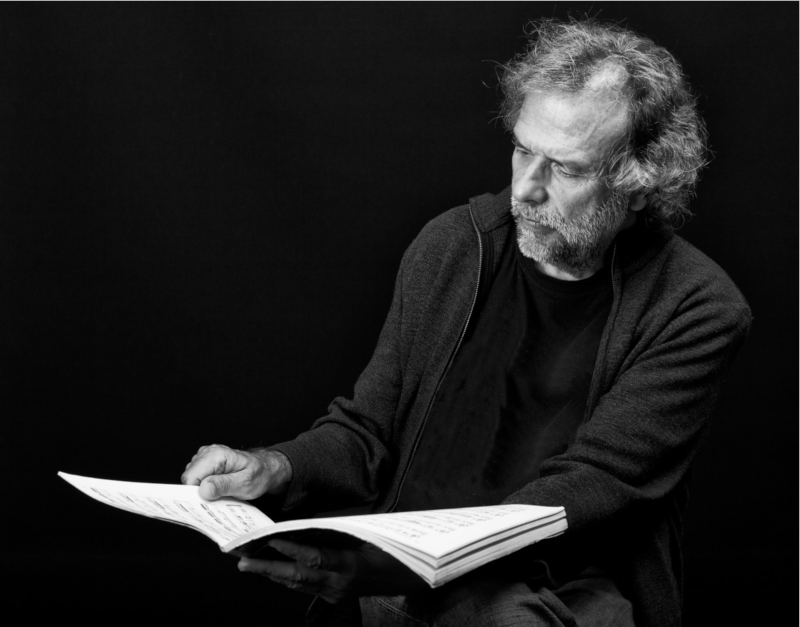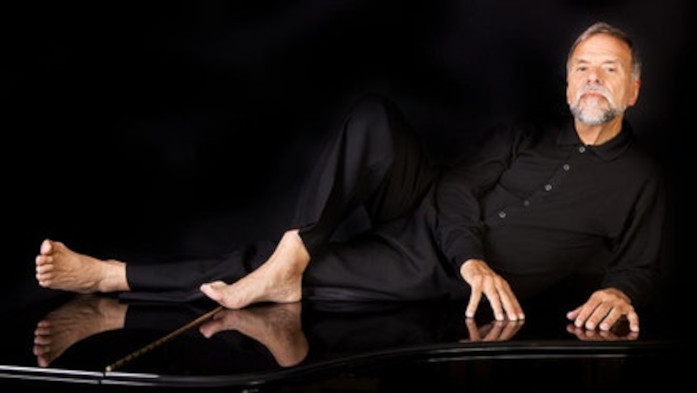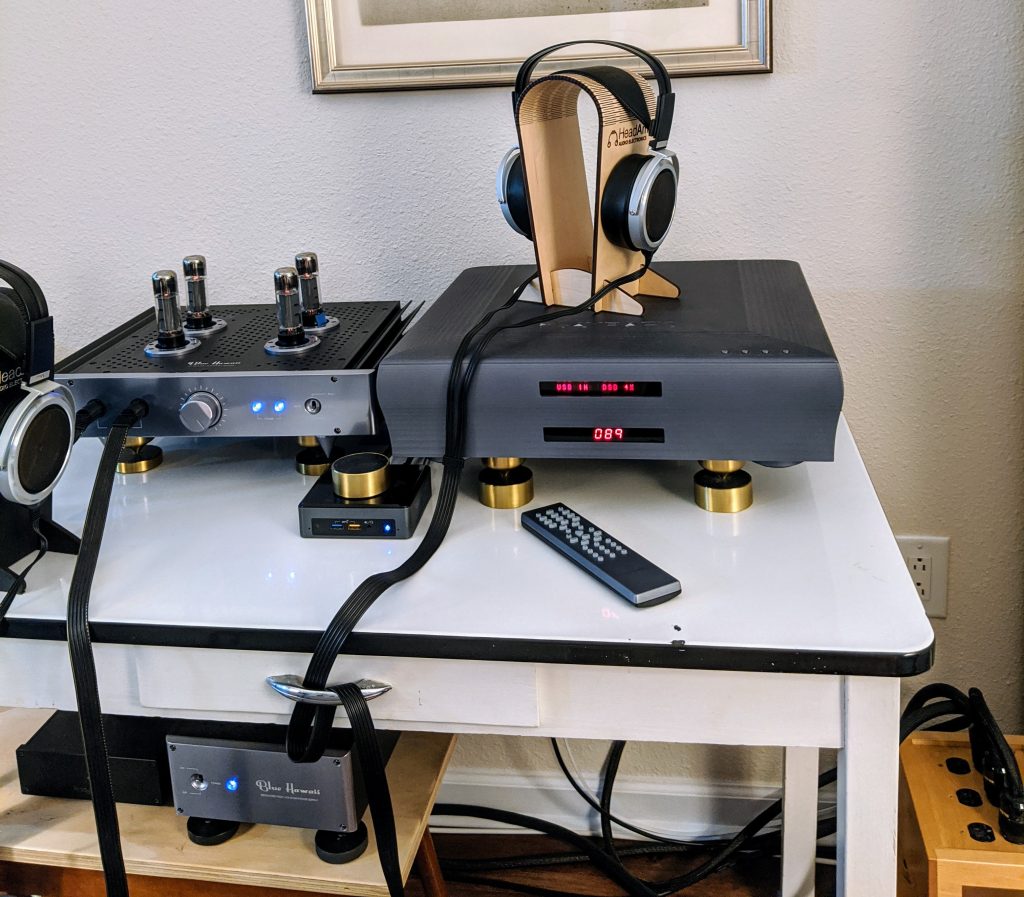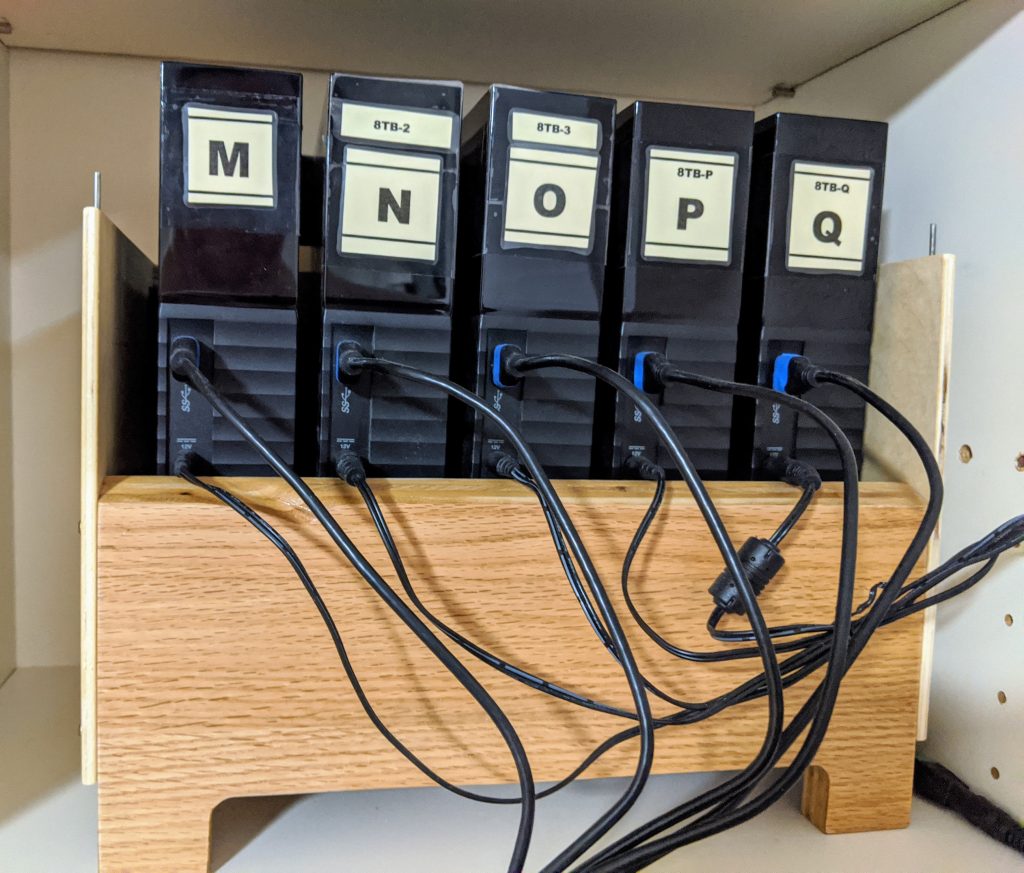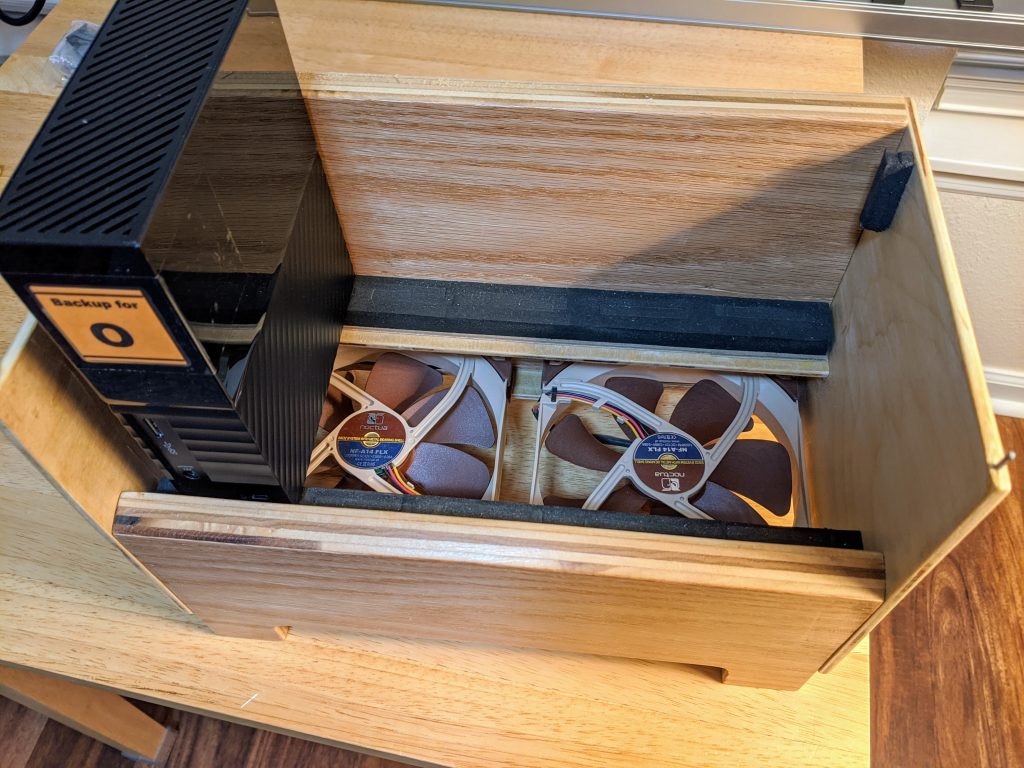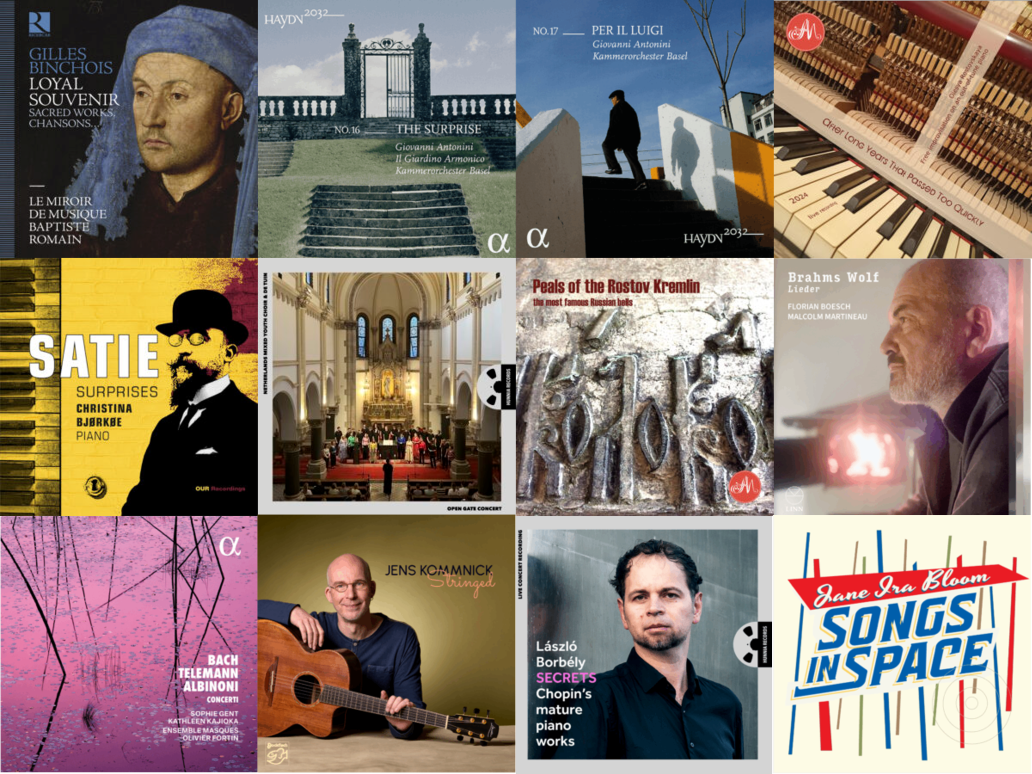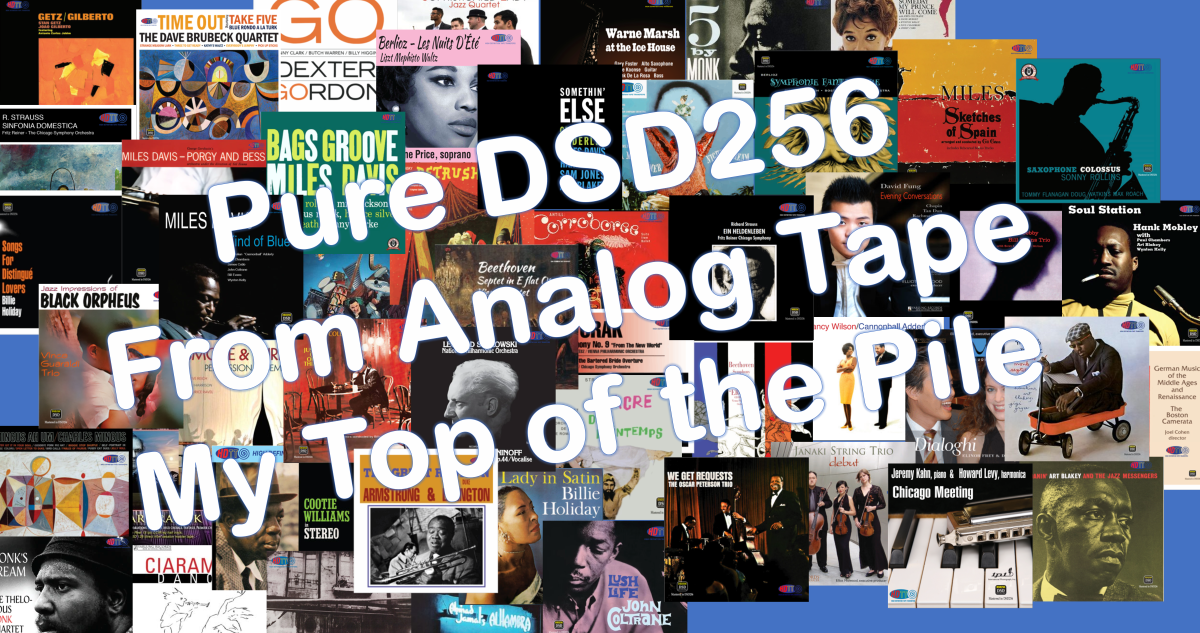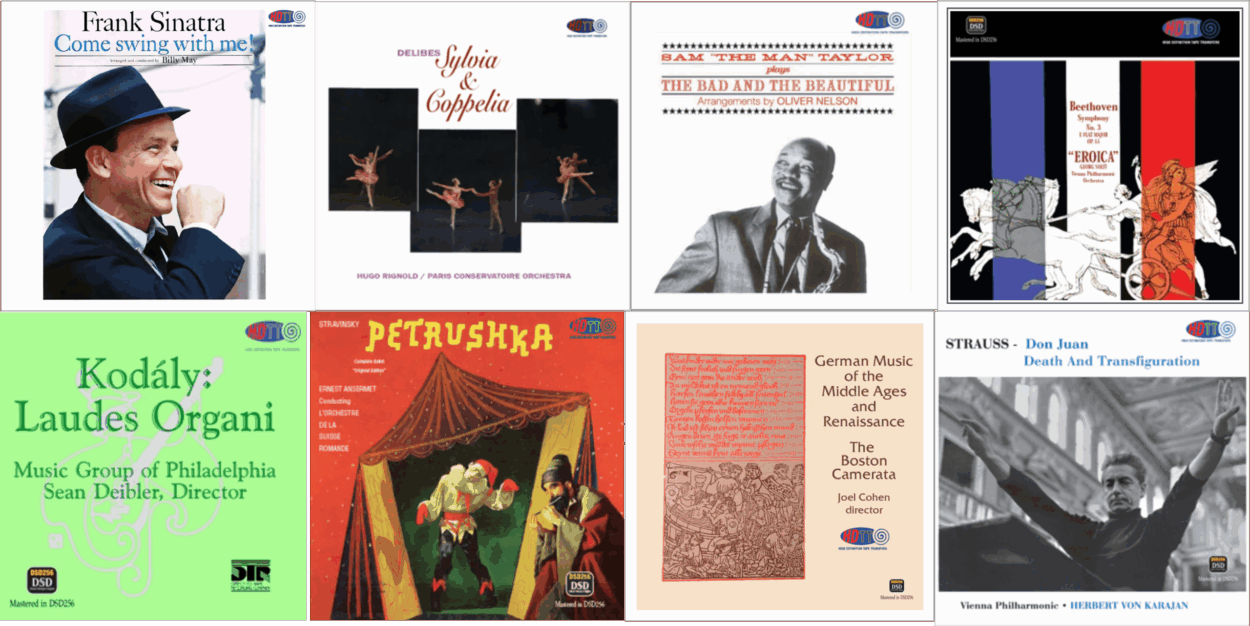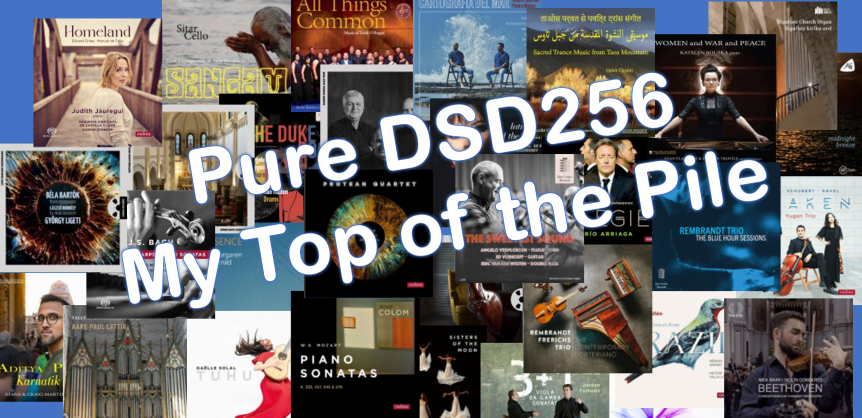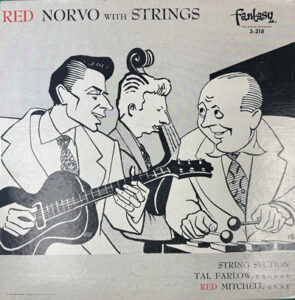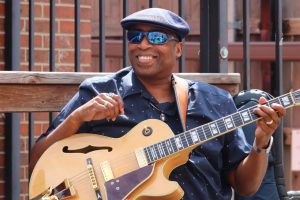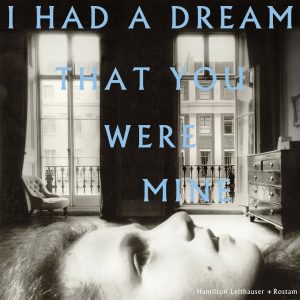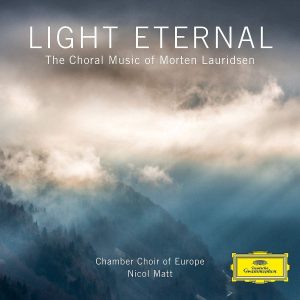I have been awestruck by the musicianship of veteran Spanish pianist Josep Colom since I first heard one his recordings three years ago. He is truly magical. Always playing with deep sensitivity, but with an intellect's assessment of what is going on with the music. Whether Bach or Chopin or Mozart or Liszt or Beethoven or Mompou, he is equally at home—always sure-footed, always bringing deep intelligence, always walking that perfect line of deeply felt emotion but never sentimentality, of romance but never excess romanticism. Let's explore.
The sound engineering on these albums is some of the best, most natural, recording of piano you will find, with Mompou: Musica Callada possibly topping all the rest. Created by Eudora's chief engineer and founder, Gonzalo Noqué, all of these recordings are truly special. Clear, translucent, and highly resolving, with exceptional capture of the natural acoustics of the room, these recordings are simply superb.
Gonzalo records direct to DSD256 in stereo and multichannel with no DXD processing. They are Pure DSD. And the results are as transparent and open as one could wish for. All are highly recommended. I encourage you to simply chose the composers and music in which you have an interest. If you love piano, you will get one and then a next and then a next—and you should. They all belong in one's library!
And one suggestion… Since these are recorded directly to DSD256, Gonzalo uses a bit lower gain setting than you may be used to. It is to ensure the recording has plenty of headroom given the huge dynamics of the piano. So, consider turning your volume up just a bit more than you might with recordings from elsewhere.
- Dialogue: Mozart and Chopin
- Confluences: Bach and Chopin
- Beethoven: The Late Piano Sonatas & Bagatelles
- Chopin & Liszt: B Minor Sonatas
- Frederic Mompou: Musica Callada
- Josep Colom, b. 1947
Dialogue: Mozart and Chopin, Josep Colom piano. Eudora. 2014 (DSD256 PureDSD) HERE
A fascinating recording. How many musicians would dare engage Mozart and Chopin, on the same recording, in a dialogue? This was my first introduction to Josep Colom. And I quickly realized that, not only did he not know fear, he delved incisively into the shared thoughts and emotions of these two very different composers. With exceptional vision and artistry, Colom shows us how very similar they are in so many ways. It is a master's class in musical understanding.
This is a journey towards an imaginary encounter. Fritz Balwit writes in Audiophile Audition: "If taken separately, the Chopin pieces sound conventionally good. They are gracious readings with command of detail and tone throughout. But the Mozart pieces have probably never been conceived or performed in this fashion. Well known pieces such as the Fantasy in C minor, K. 475 and Rondo in A minor K. 511 are chosen for their abundant use of chromaticism. By judicious use of pedal and phrasing we arrive at moments of ambiguity: Is it Mozart or is it Chopin? The graceful cantabile style of both composers amounts to a common tongue, and somehow Colom brings this out in a fashion which makes other stylistic features recede a bit." (HERE)
Simply listen to the first two tracks to get a sense of where Colom is taking us. The first track is a Mozart fantasia—Colom plays it as if Chopin may have written it. If I didn't already know by the track listing that it was Mozart, I might have even guessed "Chopin" in answer to the trivia quiz. And then Colom moves into track 2 with a Chopin ecossaise (a type of energetic country dance very popular in early 19th century salons) and this sounds like Mozart in its quick sharp playing. And thus, you are given a preview.
Over the near-continuous flow of playing over 78-minutes, we are immersed in the work of one then the other composer to the point that it ceases to matter as Mozart often turns into Chopin and then Chopin into Mozart. It is a dazzling experience being exposed to such exceptional musical instinct, taste and insight as provided here by Josep Colom. Truly a masterclass, but also one that is exceptionally enjoyable without thought to the composers (particularly for one who is not a musician, but is simply a listener, like me).
And a final thought… If you enjoy the music of Chopin, just get this recording and enjoy some excellent performances of Chopin mazurkas, preludes and waltzes with some of the best recorded sound of a piano you'll find anywhere. The Prelude in C minor, op. 28:20, played on track 15 and the closing Ballade in G minor, op. 23, are to die for.
If you are first exploring the works of Josep Colom and want to sample only one album, you won't do better than starting here.
Recording session, Dialogue, July 21-24, 2013 at Conservatori del Liceu Concert Hall, Barcelona
Confluences: Bach and Chopin, Josep Colom piano. Eudora. 2017 (DSD256 PureDSD) HERE
And now the challenge is magnified. It is one thing to play Mozart/Chopin through reciprocal filters, but how does one play Bach while channeling Chopin? So how does one pull this off?
Well…, brilliantly. There are great pianists, and then there is Josep Colom.
Colom is ever the Chopin advocate. But the Bach is the real challenge. By taking great care not to weigh down the Bach, Colom treats us to a series of nice surprises, nice contrasts. And here is where his bit of special magic is applied in using connecting improvised cadenzas, miniature musings by the pianist posed as reflections. These are not shown in the track listing. They simply flow as improvisations. Very baroque practice this. And the process works. Rather than disjointed contrasting pieces, one is subtly moved from one musical genius to the other without any sense of discomfort.
All-in-all, this album struck me as a much greater musical challenge than Dialogue: Mozart-Chopin, the risks far greater. But Colom surmounts the challenge, marvelously.
Beethoven: The Late Piano Sonatas & Bagatelles, Josep Colom piano. Eudora. 2019 (DSD256 PureDSD) HERE
There are few more challenging works for piano than Beethoven's Late Piano Sonatas, No. 30-32, op. 109-111. Written towards the very end of Beethoven's life, these are filled with tremendous emotional content and technical challenges. And the Bagatelles which Colom places between each of the Sonatas are as demanding, interpretively and technically, as the sonatas. Colom navigates amongst all these challenges brilliantly.
As the introduction to the album on Eudora's website describes, Colom's original and exceptional vision brings out a fresh and different view on Beethoven's masterpieces. One which creates a single narrative path to weave together the individual movements of these three sonatas and the six bagatelles by means of a fascinating play of analogies and contrasts. The bagatelles act, in a way, as preludes to the sonatas, with transitional passages that stem from the pianist's own imagination. (HERE)
These works are often considered to require decades for a pianist to mature to the highest levels of interpretive understanding and technical skills to perform. And then, a certain convention is expected as to how to deliver these works. Well, Colom is having none of that.
He has the interpretive and technical skills, certainly. But he proceeds to take us to a fresh outlook on these works. The most apparent example of this is the final movement of Sonata No. 32. Often taken with great solemnity, Colom brings us a bright tempo that throws one's appreciation of this work in a fresh direction. I was struck by it upon first listening. I was not sure what I was hearing. But the more times I've replayed this piece, the more engaging and satisfying I find his approach to it.
As Mark Novak writes in Fanfare, "Colom has the pianistic skills to bring these sonatas to life… He is a lyrical and poetic player who, when need be, can storm the heavens with plenty of power, but he is far from a banger… As nearly 80 minutes of sublime music-making, I'd recommend it to anyone. Plus, one gets a fabulously engineered recording with an extraordinarily natural piano sound that audiophiles will envy." (HERE)
I wholeheartedly agree.
Recording Session, Beethoven Sonatas, July 4-7, 2016 at Auditorio de Zaragoza, Sala Mozart, Zaragoza, Spain
Chopin & Liszt: B Minor Sonatas, Josep Colom piano. Eudora. 2020 (DSD256 PureDSD) HERE
To appreciate the greatness of this recording, one really needs to understand how very different these two composers were in temperament and world outlook.
As Adrian Quanjer writes in HRAudio: "Liszt and Chopin were contemporaries, both acclaimed pianists, but quite different in character. Liszt: Flamboyant, virtuoso, cosmopolite, spiritually enigmatic; Chopin: Genteel, nostalgic dreamer, who preferred 'Les Salons Parisiens' rather than the concert hall. Liszt liked Berlioz's music, Chopin did not. Liszt admired Wagner. Chopin adored Rossini. Though respecting one another, both represented different styles. Chopin's piano concerti are a world apart from those of Liszt." (HERE)
While I am convinced that Josep Colom is a consummate interpreter and advocate for Chopin, he has the musical insight and technical skills to more than encompass the contrasting aesthetic of Liszt. As he demonstrates superbly in this recording. It seems almost that he doesn't pay attention to the hurdles, may no longer, in fact, even be aware of them. His playing simply soars. He never seeks to impress for the sake of doing so. No, Colom is not one for flashy displays to tout how great he is as a pianist. Instead, he plays entirely for the music, for the sense of it, for the emotional content it is conveying.
He approaches Chopin as a composer of beauty, of nuance, of delicacy, who will beat down the heavens when needed, but who does not live for doing so. Colom's touch on the keys is light, it is a caress. Even in the passages calling for fire, Colom does not bang. He plays with power, but it is from the fingers—always controlled.
In Liszt, Colom changes gears. There is power, again controlled, but roiling just under the surface. And with Liszt there is romanticism, it is played with emotion, with passion, but without the syrup that makes for such sticky sweetness in so many performances.
Altogether, Colom reminds me of Ivan Moravec in his approach to Chopin, and reminds me of Minoru Nojima in Liszt. Not shabby company by any means.
These are performances to know, and an outstanding recording to enjoy. Recommended.
Frederic Mompou: Musica Callada (Silent Music), Josep Colom piano. Eudora. 2021 (DSD256 PureDSD) HERE
Amongst all of the albums I've heard by Josep Colom, this album has most attracted me. Both musically and sonically. Musica Callada (Silent Music) is an intriguing set of miniatures written between 1959 and 1967 by Catalan composer Frederic Mompou. Frequently considered Mompou's masterpiece, these miniatures are like highly purified and concentrated distillations with intense flavor—like reductions, in cooking, of a sauce or juice. Don't consume these in one listening feast. Savor them. Take them a few at a time when you can sit to listen quietly, reflectively, intentionally.
The pieces speak with a minimalist simplicity; as Mompou himself stated: "Its mission is to reach the profound depths of our soul and the hidden domains of the vital force our spirits. This music is silent as if heard from within."
For this, Josep Colom is one of the best interpreters. He plays them not only meditatively, but with a great care for everything that this music needs—the many nuances, colorful and dynamic, and above all, the poetry.
And for the sound? I think this 2021 recording is possibly Gonzalo Noque's best solo piano recording thus far. And if you've experienced any of his exceptional recordings, you will know that this places it at a very high level of excellence, indeed. For more information about Eudora's chief recording engineer and founder, you may wish to take a look at an earlier article, A Conversation with Gonzalo Noqué, Eudora Records.
Josep Colom, b. 1947 in Barcelona
Colom says of himself:
Unusually for that period in Spain, music was a big part of our everyday family life, as far back as I can remember. Thanks to this, and the unconditional emotional and financial support I received from my parents, who were not themselves professional musicians, I was able to choose my career path at an early age, and have enjoyed it ever since.
In my youth, I won a number of competitions. The Jaén and Santander International competitions (1977 and 1978 respectively) helped me begin to make a name for myself in Spain; many years later, the Spanish Ministry of Culture awarded me the National Music Prize, an accolade I'm particularly proud to have won because it represents the appreciation and endorsement of my colleagues in the profession. During the 1980s I gradually made more and more public appearances, and these days, as well as performing as a recital soloist and chamber musician, I play regularly with virtually all the Spanish orchestras under the baton of excellent conductors, at the country's leading venues and festivals. I also play abroad quite frequently, especially in France, where I lived for a number of years during the 70s while studying at Paris's École Normale de Musique, founded by Alfred Cortot. I've also made most of my recordings in France, for the Mandala label, with albums of music by composers as diverse as Brahms, Franck, Blasco de Nebra, Mompou and Falla, among others. RTVE has recently released both a DVD of a performance I gave of Prokofiev's Third Piano Concerto and a CD of works by Chopin, Debussy and Ravel—live recordings from the Radio Clásica archive issued as part of a series entitled Grandes pianistas españoles. Despite the occasional imperfection here and there, I prefer live recordings for the greater authenticity they offer.
Throughout my career many other musicians have influenced my artistic development. One in particular that I'd like to mention is the composer (and, at the time, pianist) Joan Guinjoán who, when I was only nineteen, helped me develop a much more rational and structured way of approaching music and performance.
My reserved, introverted temperament means I feel most at home in the world of recital and chamber music, although I've never wanted to forego the chance to enjoy the wonders of the concerto repertoire. I'm not going to try to list all the orchestras, conductors, quartets and other musicians with whom I've shared great moments of music-making, because inevitably I'd leave some of them out, but I value each and every one of them immensely.
Teaching has become an increasingly important part of my life. Coming into contact with younger musicians has enabled me to rediscover the great piano repertoire with renewed enthusiasm. As well as giving regular masterclasses, I've also taught at the University of Alcalá de Henares since its music department opened in 1990, and at the Saragossa Conservatory and Valencia's Musikeon, while in September 2012 I took up a post at Barcelona's Liceu Conservatory.
I consider it a great privilege to be able to make music, and I am grateful to all those who have made the effort over the years to come and share this daily miracle with me.
-Josep Colom
All images courtesy of Eudora Records




